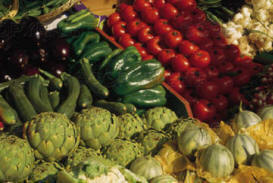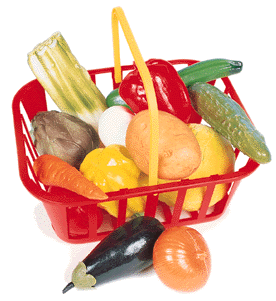Apple. Lowers cholesterol and risk for cancer. Has mild antibacterial, anti-viral, anti-inflammatory estrogenic activity. High in fiber, helps avoid constipation, suppresses appetite. Juice can cause diarrhea in children.
Asparagus. A super source of the antioxidant glutathione, to lower cancer risk.
Avocado. Benefits circulation, lowers cholesterol, dilates blood vessels. It's main fat, monounsaturated oleic acid (also concentrated in olive oil), acts as an antioxidant to block artery-destroying toxicity of bad-type-LDL cholesterol. One of the richest sources of glutathione, a powerful antioxidant shown to block thirty different carcinogens and to block proliferation of the AIDS virus in test tube experiments.
Banana and Plantain. Soothes the stomach. Good for dyspepsia (upset stomach). Strengthens the stomach lining against acid and ulcers. Has antibiotic activity.
Barley. Long known as a "heart medicine" in the Middle East. Reduces cholesterol. Has anti-viral and anti-cancer activity. Contains potent antioxidants, including tocotrienols.
Beans. (legumes, including navy, black, kidney, pinto, soy beans and lentils). Potent medicine in lowering cholesterol. One-half cup of cooked beans daily reduces cholesterol an average 10 percent. Regulates blood sugar levels. An excellent food for diabetics. Linked to lower rates of certain cancers. Very high in fiber. A leading producer of intestinal gas in most people.
Beets. Richer than spinach in iron and other minerals. The greens are helpful in cases of anemia, tuberculosis, constipation, poor appetite, obesity, tumors, gout, pimples and helpful in the elimination of irritating drug poisons. Beets are one of the best foods to relieve constipation and they are also good for obesity.
Bell Pepper. Rich in antioxidant vitamin C. Helps to fight off colds, asthma, bronchitis, respiratory infections, cataracts, macular degeneration, angina, atherosclerosis and cancer.
Blueberry. Acts as an unusual type of antibiotic by blocking attachment of bacteria that cause urinary tract infections. Contains chemicals that curb diarrhea. Also has anti-viral activity and high in natural aspirin.
Broccoli. A unique package of versatile disease-fighters. Abundant in antioxidants, including quercetin, glutathione, beta carotene, indoles, vitamin C, lutein, glucarate, sulforaphane. Extremely high in cancer fighting activity, particularly against lung, colon and breast cancers. Like other cruciferous vegetables, it speeds up removal of estrogen from the body, helping suppress breast cancer. Rich in cholesterol-reducing.fiber. Has anti-viral, anti-ulcer activity. A super source of chromium that helps regulate insulin and blood sugar. Note: cooking and processing destroys some of the antioxidants and anti-estrogenic agents, such as indoles and glutathione. Most protective when eaten raw or lightly cooked.
Brussels Sprouts. Cruciferous family possesses some of the same powers as broccoli and cabbage. Definitely anti-cancer, estrogenic and packed with various antioxidants and indoles.
Cabbage (including bok choy). Revered in ancient Rome as a cancer cure. Contains numerous anti-cancer and antioxidant compounds. Speeds up estrogen metabolism, is thought to help block breast cancer and suppress growth of polyps, a prelude to colon cancer. Eating cabbage more than once a week cut men's colon cancer odds 66 percent. As little as two daily tbsp. of cooked cabbage protected against stomach cancer. Contains anti-ulcer compounds; cabbage juice helps heal ulcers in humans. Has anti-bacterial and anti-viral powers. Can cause flatulence in some. Some of these important compounds are destroyed by cooking. Raw cabbage, as in cole slaw, appears to have stronger overall health value.
Carrot. A super source of beta carotene, a powerful anticancer, artery-protecting, immune-boosting, infection-fighting antioxidant with wide protective powers. A carrot a day slashed stroke rates in women by 68 percent. The beta-carotene in one medium carrot cuts lung cancer risk in half, even among formerly heavy smokers. High doses of beta carotene, as found in carrots, substantially reduces odds of degenerative eye diseases (cataracts and macular degeneration as well as chest pain (angina). The high soluble fiber in carrots depresses blood cholesterol and promotes regularity. Cooking can make it easier for the body to absorb carrot's beta-carotene.
Cauliflower. Cruciferous family member that contains many of the same cancer-fighting, hormone-regulating compounds as its cousins, broccoli and cabbage. Specifically thought to help ward off breast and colon cancers. Eat raw, or lightly cooked.
Celery. A traditional Vietnamese remedy for high blood pressure. Celery compounds reduce blood pressure in animals. Comparable human dose: two to four stalks a day. Also has a mild diuretic effect. Contains eight different families of anti-cancer compounds, such as phthalides and polyacetylenes, that detoxify carcinogens, especially cigarette smoke. Eating celery before or after vigorous exercise can induce mild to serious allergic reactions in some.
Chili Pepper. Helps dissolve blood clots, opens up sinuses and air passages, breaks up mucus in the lungs, acts as an expectorant or decongestant, helps prevent bronchitis, emphysema and stomach ulcers. Most of chili pepper's pharmacological activity is credited to capsaicin (from the Latin "to bite"), the compound that makes the pepper taste hot. Also a potent painkiller, alleviating headaches when inhaled, and joint pain when injected. Hot paprika made from hot chili peppers is high in natural aspirin. Antibacterial, antioxidant activity. Putting hot chili sauce on food also speeds up metabolism, burning off calories. Chili peppers do not harm the stomach lining or promote ulcers.
Cinnamon. A strong stimulator of insulin activity, thus potentially helpful for those with Type 2 diabetes. Mild anti-coagulant activity.
Clove. Used to kill the pain of toothache and as an anti-inflammatory against rheumatic diseases. Has anti-coagulant effects, (anti-platelet aggregation), and its main ingredient, eugenol, is anti-inflammatory.
Coffee. Most, but not all, of coffee's pharmacological impact comes from its high concentration of caffeine a psychoactive drug. Caffeine, depending on an individual's biological makeup and peculiar sensitivity, can be a mood elevator and mental energizer. Improves mental performance in some. An emergency remedy for asthma. Dilates bronchial passages. Mildly addictive. Triggers headaches, anxiety and panic attacks in some. In excess, may cause psychiatric disturbances. Promotes insomnia. Coffee stimulates stomach acid secretions (both caffeinated and decaf). Can aggravate heartburn. Promotes bowel movements in many, causes diarrhea in others. Caffeine may promote fibrocystic breast disease in some women.
Collard Greens. Full of anti-cancer, antioxidant compounds, including lutein, vitamin C and beta carotene. In animals, blocks the spread of breast cancer. Like other green leafy vegetables, associated with low rates of all cancers.
Corn. Anticancer and antiviral activity, possibly induced by corn's content of protease inhibitors. Has estrogen-boosting capabilities. A very common cause of food intolerance linked to symptoms of rheumatoid arthritis, irritable bowel syndrome, headaches and migraine-related epilepsy in children.
Cranberry. Strong antibiotic properties with unusual abilities to prevent infectious bacteria from sticking to the cells lining the bladder and urinary tract. Thus, it helps prevent recurring urinary tract (bladder) infections. Also has antiviral activity.
Cucumbers. Should be eaten freely by people who live on the desert or in other hot climates—the most cooling food. Indicated for fevers, constipation, skin eruptions, high blood pressure, rheumatism, obesity, acidosis and is a mild diuretic.
Date. High in natural aspirin. Has laxative effect. Dried fruits, including dates, are linked to lower rates of certain cancers, especially pancreatic cancer. Contains compounds that may cause headaches in susceptible individuals.
Eggplant. Eggplant substances, called glycoalkaloids, made into a topical cream medication have been used to treat skin cancers such as basal cell carcinoma, according to Australian researchers. Also, eating eggplant may lower blood cholesterol and help counteract some detrimental blood effects of fatty foods. Eggplant also has antibacterial and diuretic properties.
Fenugreek Seed. A spice common in the Middle East and available in many U.S. food markets. Has anti-diabetic powers. Helps control surges of blood sugar and insulin. Also anti-diarrheal, anti-ulcer, anti-diabetic, anti-cancer, tends to lower blood pressure, helps prevent intestinal gas.
Flax seeds and oil. Used primarily for constipation. In cases of gastritis, colitis or other inflammations of the digestive tract. Lowers blood fat levels often associated with heart attacks and strokes. Reduces harmful blood cholesterol levels with its soluble fibers. Prevents colon and breast cancer through its rich source of lignins, a documented anti-cancer agent. Improves moods, diminishes allergies and produces healthier skin.
Fig. Helps to prevent cancer. Both extract of figs and the fig compound, benzaidehyde, have helped shrink tumors in humans according to Japanese tests. Also laxative, anti-ulcer, antibacterial and antiparasitic powers. Triggers headaches in some people.
Fish and Fish Oil. An ounce a day has been shown to cut risk of heart attacks by 50 percent. The omega-3 oil in fish can relieve symptoms of rheumatoid arthritis, osteoarthritis, asthma, psoriasis, high blood pressure, Raynaud's disease, migraine headaches, ulcerative colitis and, possibly, multiple sclerosis. May help ward off strokes. A known anti-inflammatory agent and anti-coagulant. Raises good type HDL cholesterol. Lowers triglycerides. Guards against glucose intolerance and Type 11 diabetes. Some fish are high in antioxidants, such as selenium and Coenzyme Q-10. Exhibits anti-cancer activity especially in blocking development of colon cancer and spread of breast cancer. Fish highest in omega-3 fatty acids include sardines, mackerel, herring, salmon, tuna.
Garlic. Used to treat an array of ills since the dawn of civilization. Broad-spectrum antibiotic that combats bacteria, intestinal parasites and viruses. In high doses it has cured encephalitis. Lowers blood pressure and blood cholesterol, discourages dangerous blood clotting. Two or three cloves a day cut the odds of subsequent heart attacks in half in heart patients. Contains multiple anti-cancer compounds and antioxidants and tops the National Cancer Institute's list as a potential cancer-preventive food. Lessens chances of stomach cancer in particular. A good cold medication. Acts as a decongestant, expectorant, anti-spasmodic, anti-inflammatory agent. Boosts immune responses. Helps relieve gas, has anti-diarrheal, estrogenic and diuretic activity. Appears to lift mood and has a mild calming effect. High doses of raw garlic (more than three cloves a day) have caused gas, bloating, diarrhea and fever in some. Aged garlic may be better than cooked garlic. Eat garlic both raw and cooked for all-around insurance.
Ginger. Used to treat nausea, vomiting, headaches, chest congestion, cholera, colds, diarrhea, stomach ache, rheumatism, and nervous diseases. Ginger is a proven anti-nausea, anti-motion sickness remedy that matches or surpasses drugs such as Dramamine. Helps thwart and prevent migraine headaches and osteo-arthritis. Relieves symptoms of rheumatoid arthritis. Acts as an anti-thrombotic and anti-inflammatory agent in humans; is an antibiotic in test tubes (kills salmonella and staph bacteria), and an anti-ulcer agent in animals. Also, has anti-depressant, anti-diarrheal and strong antioxidant activity. High in anti-cancer activity.
Grape. Rich in antioxidant compounds. Red grapes (but not white or green grapes) are high in the antioxidant quercetin. Grape skins contain resveratrol, shown to inhibit blood-platelet clumping (and consequently, blood clot formation) and boost good-type HDL cholesterol. Red grapes are antibacterial and antiviral in test tubes. Grape seed oil also raises good-type cholesterol.
Grapefruit. The pulp contains a unique pectin (in membranes and juice sacs—not in juice) that lowers blood cholesterol and reverses atherosclerosis (clogged arteries) in animals. Has anticancer activity, and appears particularly protective against stomach and pancreatic cancer. The juice is antiviral and high in various antioxidants, especially vitamin C.
Honey. Strong antibiotic properties. Has sleep-inducing, sedative and tranquilizing properties. Use sparingly as it is high in sugar.
Kale. Rich source of various anti-cancer chemicals. Has more beta carotene than spinach and twice as much lutein, the most of any vegetable tested. Kale is also a member of the cruciferous family, endowing it with anti-cancer indoles that help regulate estrogen and fight off colon cancer.
Kiwi Fruit. Commonly prescribed in Chinese traditional medicine to treat stomach and breast cancer. High in vitamin C.
Lecithin. Protects the nerves. Improves memory. May help thyroid and adrenal hypertension. Protects cells against damage by oxidation. Emulsifies fat in the blood.
Lemon. This citrus fruit ranks very high in its medicinal value, having many therapeutical uses. Lemon juice is a natural antiseptic which may be safely applied directly to cuts, bruises and infections. Lemon juice is good for asthma, headaches, pneumonia, and arthritis. It is a good general blood and body purifier and a mild diuretic. Do not take in cases of inflammations of the digestive tract. The juice also aids in the removal of old drug residues (poisons) from the body.
Licorice. Strong anti-cancer powers, possibly because of a high concentration of glycyrrhizin. Mice drinking glycyrrhizin dissolved in water have fewer skin cancers. Also kills bacteria, fights ulcers and diarrhea. May act as a diuretic. Too much licorice can raise blood pressure. Also it is not advised for pregnant women. Only real licorice has these powers. Licorice "candy" sold in the United States is made with anise instead of real licorice. Real licorice says "licorice mass." Imitation licorice is labeled "artificial licorice" or "anise."
Melon (green and yellow, such as cantaloupe and honeydew). Has anti-coagulant (blood-thinning) activity. Contains the antioxidant beta carotene.
Milk. Milk fat promotes cancer and heart disease. Milk is also an unappreciated terror in triggering "allergic" reactions that induce joint pain and symptoms of rheumatoid arthritis, asthma, irritable bowel syndrome and diarrhea. In children and infants milk is suspected to cause or contribute to colic, respiratory problems, sleeplessness, itchy rashes, migraines, epileptic seizures, ear infections and even diabetes. May retard healing of ulcers.
Mushroom (Asian, including shiitake). A longevity tonic, heart medicine and cancer remedy in Asia. Current tests show mushrooms, such as maitake, help prevent and/or treat cancer, viral diseases, such as influenza and polio, high blood cholesterol, sticky blood platelets and high blood pressure. Eaten daily, maitake or shiitake, fresh (three ounces) or dried (one-third ounce), cut cholesterol by 7 and 12 percent respectively. A shiitake compound, lentinan, is a broad-spectrum antiviral agent that potentiates immune functioning. Used to treat leukemia in China and breast cancer in Japan. Extract (sulfated B-glucans) has been declared by Japanese scientists more effective as an AIDS drug than the common drug AZT. Eating black ("tree ear') mushroom "thins the blood." No therapeutic effects are known for the common U.S. button mushroom. Some claim this species has cancer-causing potential (hydrazides) unless cooked.
Mustard (including horseradish). Recognized for centuries as a decongestant and expectorant. Helps break up mucus in air passages. A good remedy for congestion caused by colds and sinus problems. Also antibacterial. Increases metabolism, burning off extra calories. In one British test about three-fifths of a teaspoon of ordinary yellow mustard increased metabolic rate about 25 percent, burning forty-five more calories in three hours.
Nuts. Anti-cancer and heart-protective properties. A key food among Seventh-Day Adventists, known for their low rates of heart disease. Walnuts and almonds help reduce cholesterol, contain high concentrations of antioxidant oleic acid and mono-unsaturated fat, similar to that in olive oil, known to protect arteries from damage. Nuts generally are high in antioxidant vitamin E, shown to protect against chest pain and artery damage. Brazil nuts are extremely rich in selenium, an antioxidant linked to lower rates of heart disease and cancer. Walnuts contain ellagic acid, an antioxidant and cancer-fighter, and are also high in omega-3 type oil. Nuts, including peanuts, are good regulators of insulin and blood sugar, preventing steep rises, making them good foods for those with glucose intolerance and diabetes. Peanuts also are estrogenic. Nuts have been found lacking in the diets of those who later develop Parkinson's disease. Prime cause of acute allergic reactions in susceptible individuals.
Oats. Can depress cholesterol 10 percent or more, depending on individual responses. Oats help stabilize blood sugar, have estrogenic and antioxidant activity. They also contain psychoactive compounds that may combat nicotine cravings and have anti-depressant powers. High doses can cause gas, abdominal bloating and pain in some.
Olive oil. Lowers bad LDL cholesterol without lowering good HDL cholesterol. Helps keep bad cholesterol from being converted to a toxic or "oxidized" form. Thus, helps protect arteries from plaque. Reduces blood pressure, helps regulate blood sugar. Has potent antioxidant activity. Best oil for kitchen cooking and salads.
Onion (including chives, shallots, scallions, leeks). Reputed in ancient Mesopotamia to cure virtually everything. An exceptionally strong antioxidant. Full of numerous anti-cancer agents. Blocks cancer dramatcally in animals. The onion is the richest dietary source of quercetin, a potent antioxidant (in shallots, yellow and red onions only-not white onions). Specifically linked to inhibiting human stomach cancer. Thins the blood, lowers cholesterol, raises good-type HDL cholesterol (preferred dose: half a raw onion a day), wards off blood clots, fights asthma, chronic bronchitis, hay fever, diabetes, atherosclerosis and infections. Anti-inflammatory, antibiotic, antiviral, thought to have diverse anti-cancer powers. Quercetin is also a sedative. Onions aggravate heartburn, may promote gas.
Orange. Natural cancer-inhibitor, includes carotenoids, terpenes and flavonoids. Also rich in antioxidant vitamin C and beta-carotene. Specifically tied to lower rates of pancreatic cancer. Orange juice protected mice sperm from radiation damage. Because of its high vitamin C, oranges may help ward off asthma attacks, bronchitis, breast cancer, stomach cancer, atherosclerosis, gum disease, and boost fertility and healthy sperm in some men. May aggravate heartburn.
Parsley. Anti-cancer because of its high concentrations of antioxidants, such as monoterpenes, phthalides, polyacetylenes. Can help detoxify carcinogens and neutralize certain carcinogens in tobacco smoke. Also, has diuretic activity.
Pineapple. Suppresses inflammation. A main constituent, an antibacterial enzyme called bromelain, is anti-inflammatory. Pineapple aids digestion, helps dissolve blood clots and is good for preventing osteoporosis and bone fractures because of its very high manganese content. It is also antibacterial and anti-viral and mildly estrogenic.
Plum. Antibacterial. Anti-viral. Laxative.
Potato (white). Contains anticancer protease inhibitors. High in potassium, thus may help prevent high blood -pressure and strokes. Some estrogenic activity.
Prune. A well known laxative. High in fiber, sorbitol and natural aspirin.
Pumpkin. Extremely high in beta carotene, the antioxidant reputed to help ward off numerous health problems, including heart attacks, cancer, cataracts.
Raspberry. Anti-viral, anti-cancer activity. High in natural aspirin.
Rice. Anti-diarrheal, anti-cancer activity. Like other seeds, contains anti-cancer protease inhibitors. Of all grains and cereals, it is the least likely to provoke intestinal gas or adverse reactions (intolerances) causing bowel distress such as spastic colon. Rice bran is excellent against constipation, lowers cholesterol and tends to block development of kidney stones.
Seaweed and Kelp (brown or Laminaria type seaweed).
One of the best foods that you can eat in cases of hypo-thyroid. It is rich in many important minerals. Antibacterial and anti-viral activity in brown Laminaria type seaweed known as kelp. It kills herpes virus, for example. Kelp may also lower blood pressure and cholesterol. Wakame boosts immune functioning. Nori kills bacteria and seems to help heal ulcers. A chemical from wakame seaweed is a clot-buster, in one test twice as powerful as the common drug heparin. Most types of seaweed have anti-cancer activity. Might aggravate acne flare-ups.
Soybean. Rich in hormones, it boosts estrogen levels in post-menopausal women. Has anti-cancer activity and is thought to be especially antagonistic to breast cancer, possibly one reason rates of breast and prostate cancers are low among the Japanese. Soybeans are the richest source of potent protease inhibitors which are anti-cancer, anti-viral agents. Soybeans lower blood cholesterol substantially. In animals, soybeans seem to deter and help dissolve kidney stones.
Spinach. Tops the list, along with other green leafy vegetables, as a food most eaten by people who don't get cancer. A super source of antioxidants and cancer antagonists, containing about four times more beta-carotene and three times more lutein than broccoli, for example. Rich in fiber that helps lower blood cholesterol. Some of it's antioxidants are destroyed by cooking. Eat raw or lightly cooked.
Strawberry. Anti-viral, anti-cancer activity. Often eaten by people less likely to develop all types of cancer. Only eat organically grown. Strawberries have the highest amount of pesticide contaminates.
Sugar. Helps heal wounds when applied externally. Like other carbohydrates, sugar helps induce cavities. Also may be related to Crohn's disease. Triggers rise in blood sugar and stimulates insulin production. One teaspoon of sugar is said to set the immune system back 3 ½ hours. Causes fatigue and adrenal weakness.
Sweet Potato (yams). A source of the antioxidant beta carotene, linked to preventing heart disease, cataracts strokes and numerous cancers. One half cup of mashed sweet potatoes contains about 23,000 international units (lUs) of beta carotene, according to Department of Agriculture figures.
Tea (including black, oolong and green tea, not herbal teas).
Amazing and diverse pharmacological activity, mainly due to catechins. Tea acts as an anticoagulant, artery protector, antibiotic, anti-ulcer agent, cavity-fighter, anti-diarrheal agent, anti-viral agent, diuretic (caffeine), analgesic (caffeine), mild sedative (decaffeinated). In animals tea and tea compounds are potent blockers of various cancers. Tea drinkers appear to have less atherosclerosis (damaged, clogged arteries) and fewer strokes. Excessive tea drinking because of its caffeine could aggravate anxiety, insomnia and symptoms of PMS. Tea may also promote kidney stones because of its high oxalate content. Green tea, popular in Asian countries, is highest in catechins, followed by oolong and ordinary black tea, common in the United States. Green tea is considered most potent. One human study, however, found no difference in benefits to arteries from green or black tea.
Tomato. A major source of lycopene, an antioxidant and anti-cancer agent that intervenes in devastating chain reactions of oxygen free radical molecules. Tomatoes are linked in particular to lower rates of pancreatic cancer and cervical cancer.
Tumeric. Truly one of the marvelous medicinal spices of the world. Its main active ingredient is curcumin which gives turmeric its intense cadmium yellow color. Curcumin, studies show, is an anti-inflammatory agent on a par with cortisone, and has reduced inflammation in animals and symptoms of rheumatoid arthritis in humans. In other tests, it lowered cholesterol, hindered platelet aggregation (blood clotting), protected the liver from toxins, boosted stomach defenses against acid, lowered blood sugar in diabetics, and was a powerful antagonist of numerous cancer-causing agents. Anti-cancer activity.
Watermelon. High amounts of lycopene and glutathione, antioxidant and anti-cancer compounds. Also mild anti-bacterial, anti-coagulant activity.
Wheat. High-fiber whole wheat, and particularly wheat bran, ranks as the world's greatest preventives of constipation. The bran is potently anti-cancer. Remarkably, in humans, wheat bran can suppress that which can develop into colon cancer. Anti-parasitic. Ranks exceedingly high as a trigger of food intolerances and allergies, resulting in symptoms of rheumatoid arthritis, irritable bowel syndrome and neurological illnesses.
Yogurt (use only organic yogurt). Goat yogurt is preferred. An ancient wonder food, strongly antibacterial and anti-cancer. A cup or two of yogurt a day boosts immune functioning by stimulating production of gamma interferon. Also spurs activity of natural killer cells that attack viruses and tumors. A daily cup of yogurt reduced colds and other upper respiratory infections in humans. Helps prevent and cure diarrhea. A daily cup of yogurt with acidophilus cultures prevents vaginitis (yeast infections) in women. Helps fight bone problems, such as osteoporosis, because of high available calcium content. Acidophilus yogurt cultures neutralize cancer-causing agents in the intestinal tract. Yogurts with L bulgaricus and S. thermophilus cultures, both live and dead, blocked lung cancers in animals. Yogurt with live cultures is safe for people with lactose intolerance.
For more information see: Barilla, Jean, M.S., The Good Fats and Oils


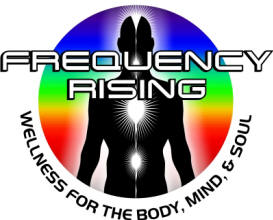

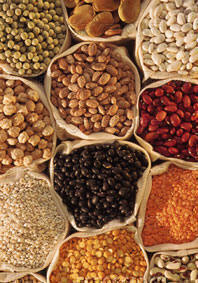 It's simple. Whole foods are literally a natural, raw product of nature. Whole foods have not been altered chemically or
It's simple. Whole foods are literally a natural, raw product of nature. Whole foods have not been altered chemically or 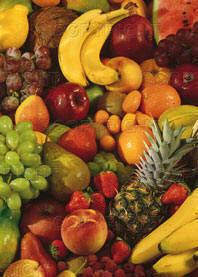
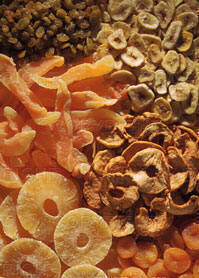 "A 13-year study of nearly 30,000 women found that those who followed six or more guidelines from the American Institute for Cancer Research (AICR) ran a 35 percent lower risk of cancer than women who met one or none... "
"A 13-year study of nearly 30,000 women found that those who followed six or more guidelines from the American Institute for Cancer Research (AICR) ran a 35 percent lower risk of cancer than women who met one or none... "